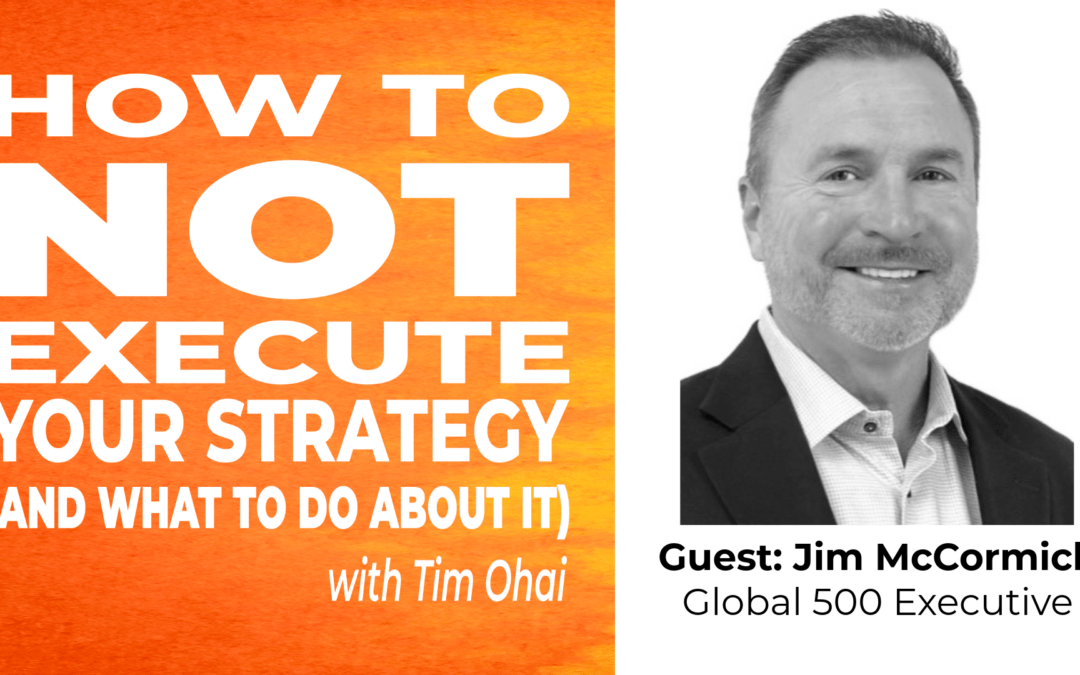How to NOT Execute Your Strategy (Episode 28): Jim McCormick
Jim McCormick is an accomplished executive leader with a deep background in developing and executing sales strategies. His skills were developed from 35 years in corporate sales, starting as a frontline sales rep and working his way to Vice President of Commercial Sales for Shell Oil. He started his own consulting company in 2022, McCormick Growth Partners, working with individuals as a performance coach and various clients to develop successful sales strategies. In this episode, Jim shares the lessons he has learned about the blindspots that keep leaders from recognizing that a strategy is failing – and what to do about them.
- Find the audio version on your favorite platform or go directly via RSS.com
- Watch this episode on Youtube
Three key concepts:
- Don’t become fixated on fixing your plan. It will crush your team and generate massive amounts of waste. Instead, rethink your definition of execution. Execution is not about following a plan. It’s about making the right decisions.
- A massive mistake that many leadership teams make is not having a proactive backup plan defined. By having a Plan B already in place, it makes it much easier to recognize the failure triggers of Plan A and to quickly pivot without generating more waste. This gets to the heart of what Jim meant by “fail fast.”
- Curiosity can be learned. You simply need to keep asking why. Not only does it open the door for you to learn what you don’t know, it also creates the empathy that you will need in your decision-making. Without this empathy, you will have zero idea how the team will engage with the strategy when you roll it out.
BONUS – Leader guide: Use the following questions for (a) self-reflection as a leader and/or (b) a great discussion with your team.
1) Listen to the full episode before this discussion.
2) Honest question: Do you think we accept failure as part of the execution journey? Why or why not?
3) In 10 words or less, define what “fail fast” means. Share your answers.
4) What are the most critical elements of being able to fail fast in a healthy way?
5) What do you think are the biggest obstacles to failing fast? How well do our leaders navigate around these obstacles? Why?
6) Looking at our efforts now, what should we be doing to ensure that we fail fast and ensure the our strategy gets executed well?
7) Option: Take time right now to define exactly what that looks like (the outcome(s), metrics, and requirements).
If you enjoyed this episode, please share it with at least one person. And leave me a review on whatever platform you engaged this podcast. Your feedback is invaluable to me.
Holomua. Onward and upward.
All the best ~ Tim
PS Like what you’re reading? Please share this content with a friend so they can join the community.


Recent Comments